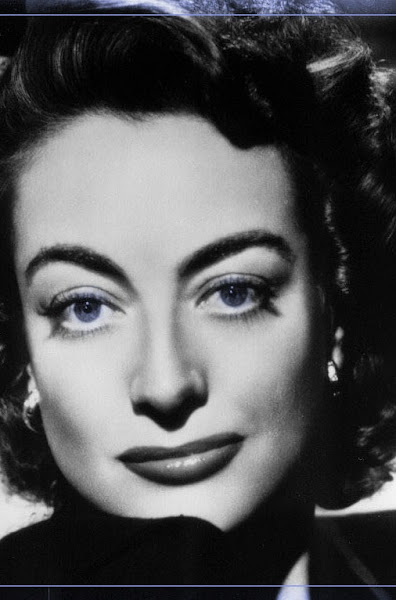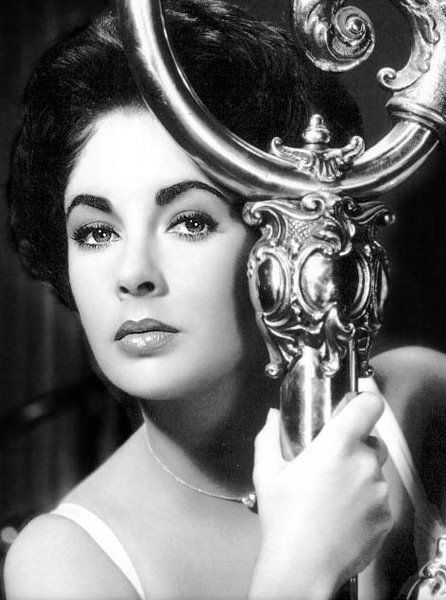 (Photo Credit: Adam Bouska, NO H8 Campaign)
(Photo Credit: Adam Bouska, NO H8 Campaign)
“‘Lesbians are okay in the South!’ So I went to Vanderbilt,” documentary filmmaker Ky Dickens giggles over a glass of red wine in the lounge at the Vanderbilt Marriott Hotel. Through the laughter, the Chicago native describes to me one motivating factor for coming to Vanderbilt University as an undergraduate: the homoerotic, Southern female protagonists of the film, “Fried Green Tomatoes” (1991). I mean, if Mary Stuart Masterson and Mary Louise Parker could make food fights so sexy and if everyone in the film seemed okay with them, why would lesbians not be okay in the South? Alas, before graduation day in 2000, Dickens, who graduated magna cum laude with majors in Human and Organizational Development (HOD) and Sociology, obviously discovered the flaws in that logic. After all, Dickens’ debut film, “Fish out of Water” (2009), reviewed for this publication by yours truly, was inspired by the opposition she faced when coming out as a lesbian to her sorority sisters during her senior year at Vanderbilt, a decision which Dickens reveals was provoked by a moving screening of Kimberly Peirce’s “Boys Don’t Cry” (1999).
While Dickens quenches my curiosity, I cannot help but be stunned by her fabulous fashion sense. Actually, Dickens looks a little like her hero, Idgie Threadgoode [Mary Stuart Masterson in “Fried Green Tomatoes”], except with the femininity of Ruth Jamison [Mary Louise Parker in “Fried Green Tomatoes”]. Dickens’ blonde hair is cropped short and gives the impression of “orderly disorder.” She is wearing a black blazer over a vintage baby-doll tee-shirt, gray slacks, and gorgeous gray and black heels. Her wrists are drowned in a sea of bangles, which all seem to have mantras on them. Her neck is adorned with a thick silver chain with a substantial block in the center. And not only is she gorgeous – even after a long day of bustling about Nashville for her film’s premiere and for an interview with Chuck Long – but she is also incredibly down-to-earth, especially for someone so bright and so eloquent.
Dickens is a fascinating conversationalist. She edifies me with examples of her favorite filmmakers and films, which, besides “Fried Green Tomatoes”, include the films of Todd Haynes, the films of Werner Herzog (which she describes too accurately as “crazy”), Michael Gondry’s “Eternal Sunshine of the Spotless Mind”, and Alfonso Cuarón’s “Y Tu Mamá También”. She also shares with me her great admiration for Oscar winner, Paul Haggis (“Crash”), who even read a draft of her film’s screenplay. His daughter, Katy Haggis, is a producer for “Fish out of Water”, and Dickens got to know her father’s work, as a result.
I met with Ky Dickens in order to talk about “Fish out of Water” after its debut screening on Vanderbilt campus on March 22nd, a screening which she calls “cathartic.” “Fish out of Water” was the first event in the Vanderbilt Lambda Association’s Rainbow ReVU week. The film will also be screened at the Nashville Film Festival in April.
The following outlines the specific questions I had for Dickens regarding the film:
O&A: Can you tell me what influenced you to make yourself an animated character in your documentary?
Dickens: Yeah. Um, well, I did not want to be in the film at all because I was very intent on this movie not being about me, and I’m very camera shy and shy, in general. And so the first draft of the film had a bird narrator. It was a little yellow bird, and there’s a whole beginning story about how a fish flips out of water and turns into a bird. It was very far-fetched. And I did a screening party to raise money and the funds to finish the film, and we showed a thirty minute clip of the film and then had a Q & A. And after the Q & A, people were coming up to me, saying, “The bird thing confused me.” That was usually their first comment. And their second comment was: “The story about your friend and Vanderbilt and the letter was so awesome and inspiring. Why aren’t you telling this from your perspective? The film would be so much easier to understand and more relate-able if you put yourself in it.” And I fought against it and fought against it and did not want to do it. And we had a big team meeting one night and that’s when it was decided, hey, let’s just make an animated character of me, and that way, it would go with the animation and we wouldn’t have to go back and re-shoot anything. It was kind of a very late-in-the-game choice to bring everything together after – almost like focus groups and showing the screenings and stuff.
O&A: How familiar were you with websites such as Soulforce.org before you made “Fish out of Water”? For the record, Soulforce has a similar mission to demystify passages of the Bible used by Christians to try to condemn homosexuality.
Dickens: Well, I’d heard of Soulforce, and they were just getting started around this time [“Fish out of Water” was made]. What’s funny is the Web wasn’t as connected as it is now. You know, I don’t even know if they had a website at that point. […] I’m not sure where [they were getting started], but they were just getting off the ground. I’d heard about a lot of their missions, and a lot of their ministries were in line with what we were doing. Um, the difference is I wanted to make it easy for people to get all the information in one fell swoop that would be, you know, non-threatening, quick, and entertaining. And instead of having people have to read it for themselves or pick through websites or go to seminars or that type of thing, which is all valuable and important, you know, for our community, but I thought it needed to be in film format, so I think that’s, um, kind of why I went my route. But yeah, I was aware of Soulforce’s… their wonderful work.
O&A: Has “Fish out of Water” been picked up by a distributor yet?
Dickens: It has. It’s been picked up by First Run Features, and that’s who distributed “For the Bible Tells Me So” and “A Jihad for Love”, so a lot of films that deal with the religious gay issue. Um, and yeah, we are being released [on DVD] April 20th.
O&A: How long did it take you to make this film?
Dickens: It took about three-and-a-half years, but the idea for it came ten years ago at Vanderbilt. But it took me some time to gain confidence both in the queer community and in the film community before I wanted to undertake the feature. And it kind of paid off because just making the networking with editorial houses, color correction houses, equipment houses, [and] that sort of thing in Chicago helped making the film financially in ways that I could never have done without, you know, kinda getting established a bit before diving right in.
O&A: Is “Fish out of Water” a one-off film, or do you intend to make another film? What is your next film project?
Dickens: I had a film I wanted to jump right into, but once this [“Fish out of Water”] started going around the festival circuit and then screening in churches and schools and that sort of thing, I realized that it would be doing a disservice to this project if I just kind of abandoned it right now and went on to the next thing. Um, so I feel it’s gonna take maybe another six months, maybe another year. The country will kind of tell me, I think, when it’s time to move on, and not vice versa. I feel like another choice of action, I would feel irresponsible doing it just because I want to make sure the film and its message reaches as many people as possible, and that’s gonna take just more work and continuous e-mails and networking and bringing, you know, being a shepherd for the film for a while longer. But hopefully by 2011, I’ll be starting on another film.
O&A: Alright! And can you give us any ideas about what it might be about?
Dickens: It won’t be socially heavy. It’s gonna be a little bit lighter. Um, but yeah, I don’t want to say anything right yet because you’re always scared your documentary ideas, you know, coming out so quick, they could change or who knows what. So I definitely look forward to doing something a little less socially polarizing.
O&A: I noticed that “Fish out of Water” is structured rather like an essay, punctuated by animated you delineating your narration with lots of “first”-s and “next”-s. This narrative style stands out to me because I have never seen anything like it. Did your training at Vanderbilt, with its emphasis on strong writing practices, have an influence on this structure?
Dickens: Um, well, I think writing style did come into it, and I learned that more from my father than probably, you know, Vanderbilt. By the time you come to college, your writing style’s kind of been chiseled out a little bit, um, or mostly. But it was a very deliberate style that was tailored to this film specifically, and that’s because the Bible, as you know, it’s so, well, there’s so much information, and it’s so polarizing that I felt like it had to be watered down and put into basic sentences and [to] really take audiences by the hand and walk through it point by point by point, so it would be, um, easy to understand, very accessible, and people wouldn’t get lost. It’s so easy to just drift off when talking about the Bible or something so old and threatening as the Bible. So by taking people, you know, almost, from a 3-year-old’s point-of-view, really step-by-step, I think it makes it easier to follow, and yeah, so it was a specific choice for this film. I don’t know if I’ll ever have the need to make a film like that again in this format, but I think it works for “Fish out of Water”.
O&A: What influenced you to use Fred Phelps as a talking head for your interviews of theologians and religious figures, especially in a film trying to justify GLBTQ people to God and his people?
Dickens: Okay, well, two reasons. One is, you know, Fred Phelps is very extreme in how he carries out things. There are a lot of people out there who really agree with him. And by using Fred Phelps, who is, really, he’s laughable in the film because he’s this frothing maniac, and people laugh at him. He was used as this comic relief, and when people can laugh at something, it empowers them, and it disarms their words. And by taking, by having Fred Phelps say these words that people hear coming from their own fathers and brothers and mothers, suddenly, those words become invalidated, and you’re able to laugh at them. And then secondly, you know, within the process of making the film, I really realized that there’s no middle ground: It’s either hate or love or intolerance or acceptance, and there’s no polite intolerance or “Love the sinner, hate the sin” type of thing. And to have a very, you know, “polite hateful” talking head in there is making it seem like that’s an okay point-of-view to have, that it’s an acceptable point-of-view, and in my opinion, it’s not. You’re dis-loving and un-accepting of gay people, [so] you’re in a category by itself. And I think people need to kind of start wrapping their head around that. Until we kind of force that task upon people, nothing’s going to change.
O&A: In what way do you see “Fish out of Water” as being indebted to the independent gay and lesbian films of the ‘90s and 2000s that preceded it?
Dickens: Well, I think every gay film that has come before any other film opens the door or finds a new audience or secures its place at a festival that will help, you know, secure your place later. Because everything is related to audience, as well as money as well as impact, it all affects everything else. And “For the Bible Tells Me So” is the most striking example, and it’s been the most personal because, specifically, the distributor that picked us up said, “Hey, ‘For the Bible’ did great for us, so we wanna give ‘Fish out of Water’ a try, too, and bring you on.” And I don’t think it would have happened if it wasn’t for For the Bible”. And, you know, when For the Bible was going out there, I don’t think anyone who would have watched a film about religion and gays thought it would work. Um, you know, any film about religion and gays at some point felt dry and boring, and you know, someone did it right and someone did it well, and then there’s something that’s done great and well [“For the Bible Tells Me So”], and then we came along and we’re kind of given our fair shake. You know, everything is a big domino effect, in terms of filmmakers coming before me, even in terms of raising money, even in terms of a movie getting made. There’s no way to know how much influence.
O&A: The funny thing is that, especially in the gay and lesbian films that hit the independent circuit in the early ‘90s, they were all about doing away with trying to make gay images more “squeaky clean,” so then you get films like “Poison” and “The Living End” and such. It’s like, “We’re here, we’re queer,” and, as B. Ruby Rich said [in her seminal 1992 essay, “New Queer Cinema”], “Get hip to [us].” In what way do you see a different trend sort of coming in specifically gay and lesbian independent films making the rounds that now get to be more about educating than about being outright “Here we are.”
Dickens: There’s kind of two movements that have sprung up. The first one in queer cinema was the idea that our characters and our representations have never been seen before. People were writing characters that were extreme: you know, very flamboyant men that were easy to laugh at, you know, kind of the jester, or butchy women. There was kind of stereotyping of our roles, and there was almost no apologizing for the “Hey, this is who we are. You’re gonna accept us exactly for our differences and celebrate those differences.” And now since the “post-gay gayness” of wanting to really fit in, and we’re kind of this big queer community, there’s kind of this idea of not necessarily wanting to celebrate our differences but wanting to celebrate our similarities and our likenesses, so our characters are like this and this and this and “Oh, I also happen to be gay.” And I think that’s great, too, but it’s gonna take both because we don’t want to get rid of the sweet, flamboyant guy and the super bull dyke or whatever because then we’re missing those important factors in our community, as well. You know, but there is a difference happening, I think, in queer cinema between celebrating our differences and celebrating our similarities. It’s interesting.
*Originally submitted for the "Out & About" newspaper website. To access it, click here.*
Read more...

.jpg)

.jpg)
.jpg)










